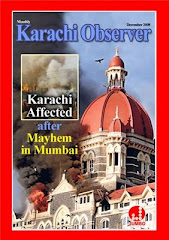The continuing spilling of blood in sectarian killings in Quetta and Gilgit Baltistan manifests a blatant failure to address religious intolerance in society, which constitutes one of the biggest threats for the country, the Human Rights Commission of Pakistan (HRCP) said on Wednesday.
The Commission said in a statement: “HRCP is alarmed by the continuing sectarian bloodshed in Pakistan, particularly in Quetta and Gilgit Baltistan. The killings demonstrate a disturbing pattern and appear to be part of a well-planned sequence. It has been stated that miscreants from Afghanistan have been involved. That may be one problem but it certainly is not the only one. The mindless bloodshed that we witness day in and day out is rooted in religious intolerance cultivated by the state. Politics in the name of religion has substantially worsened what was already an appalling situation. It is alarming that no one responsible for these killings has been nabbed in years. The people are paying the price of indifference with their lives. Rather than wasting time on addressing mere symptoms,the root cause of the problem must be identified and addressed. Instead of living in denial, we must now identify the policies that strengthen extremism and promote faith-based hatred in society. These constitute the single biggest threat to Pakistan.
In these perilous times, all those who believe in people’s rights, human dignity and Pakistan’s future must not remain silent. Otherwise the consequences for the country will be unimaginably disastrous. It is time for the government, all democratic-minded political parties and conscious citizens to join hands to think of a way out of this brutal vortex in order to rescue the state that has been held to ransom by extremism and obscurantism.”
























